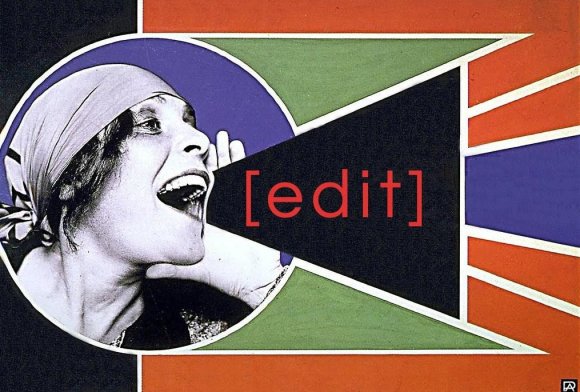
This summer, Sabine Rønsen, a library and information sciences student at the Oslo and Akershus University College of Applied Sciences, conducted six interviews with Wikimedia contributors from Norway and Sweden. Her goal was to gain a deeper understanding of why they contribute to the projects and to see how their experiences as women or gender minority participants affect their experiences editing. The views in this essay are Sabine’s alone; we are publishing her thought-provoking essay, where she shares her higher-level findings, on the Wikimedia Blog. If you are interested in this topic, please see these resources on Meta-Wiki.
By any objective measure, Wikipedia needs more female contributors. Although much effort has been spent in correcting this gender gap, it’s not clear how much impact this is having on the number of women editors. To recruit women more efficiently, one must look at the underlying causes of the gender gap and lack of contributor diversity. It is equally important to understand why those who already contribute actually remain.
I’m a student at Oslo and Akershus University College of Applied Sciences, where I’m studying library and information science. Over this summer, I worked with Wikimedia Norway (Norge). In an effort to make some inroads into these questions, I talked with five female contributors from Norway and Sweden, one of which is now based in another European country and edits almost exclusively on English Wikipedia. I also talked to a contributor who identifies as non-binary transgender. My goal was to get a deeper insight into their ideas around their own role on Wikipedia, how being a woman or gender minority affects their experience of editing, and to uncover their ideas on how to recruit more diversely.
Wikipedia is written by volunteers, and these people spend hours and hours to add on to the sum of human knowledge. It has become a hobby for many of them, and that is no different for the people I interviewed. Most hadn’t experienced much difficulty being a female editor, attributing this to having carefully maintained gender-neutral user accounts, although all of them had witnessed it happen to others. Still, the base problem, in their view, doesn’t stem from being outed or mistreated as a user—they are structural issues that appear more in content, how topics are discussed, and in general behaviour.
One of my interviewees could tell stories about various wiki-meetups where, whenever she or another female were helping beginners, guys would cut in and take over the conversation. Although well intended, this can actually scare away beginners, especially women. Many women and gender minorities experience misogyny, discrimination, or simply being underestimated at work, home, and elsewhere in their everyday lives. A question they must ask themselves is if they really want this in their hobby?
Another two of the women I spoke to are long-time contributors, having edited Wikipedia since the project’s founding. They spoke of a closed environment where vested contributors had developed a strong feeling of ownership over the project. In and of itself, this isn’t necessarily an issue. A problem arises only when this mentality makes newcomers feel excluded or not qualified to contribute.
None of the interviewees thought technical aspects of editing were the most difficult—it was figuring out what the best practices for editing are. Technical hurdles can be overcome with some teaching and practice, but discovering best practices was largely an exercise that could only be discovered through trial and error, and a virulent reaction to a newcomer’s first error can mean that they aren’t willing to try again.
This is where the importance of polite and constructive feedback is clear, versus, as one interviewee put it, the “cross language, articles deleted without explanation, and expectation that one should know all of the rules from their first edit.” In addition, the Swedish editors brought up the impact of various in-person meetups. These events represented a safe place to ask “stupid” questions, meet people, and discuss the Wikipedia community and its culture.
One of the contributors I spoke to expressed concern that a lot of the rather unfortunate practices at Wikipedia are being cemented in place—that in attempting to be as encyclopedic as possible, we’re at risk of falling victim to same conservatism and exclusive thinking that has characterized traditional encyclopedias. And this is somewhat of a paradox because historically encyclopedias has been known for being progressive. Just think of the revolutionary French Encyclopédie. Did you know that to avoid censorship, the writers often hid statements that were controversial at the time in obscure articles and cunning cross-references?
As for the question of making Wikipedia your hobby despite disheartening experiences, all of the people I interviewed answered this with a resounding yes. To them, the importance of having history written by all segments of society outweighs all other considerations. The way Wikipedia is set up can encourage traditionally underrepresented populations to contribute their own stories. As one pointed out, treating each other decently will not only make recruiting women and those with other gender identities easier, it will make Wikipedia a more attractive place for experts to share their own knowledge—people who are perhaps less accustomed to ‘internet culture.’
And as to why my interviewees all still edit, they named two things. First, they view their work as important. They are helping gift knowledge to the world.
And second? Editing is, quite simply, addictive.
Sabine Rønsen, Wikimedia Norway

Can you help us translate this article?
In order for this article to reach as many people as possible we would like your help. Can you translate this article to get the message out?
Start translation